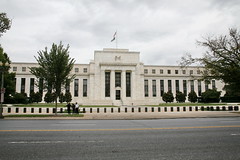As we reported earlier this week, the U.S. did not do so well in the opening of this week as traders anxiously await testimony by the Federal Reserve chief Bernanke. As the market eagerly awaits more clues about the testimony from the Fed chair, the dollar is on the backfoot. This situation also runs in parallel with the ZEW investor sentiment index dropping for the third month in a row and Spain’s borrowing costs elevating after the bond sale. As the dollar is slipping and other currencies are on the constant up and down, what can we expect as a result of all this, and exactly what is going on?
—-
With investors positioning for more quantitative easing by the Fed, analysts saw a risk that the dollar may bounce or assets such as stocks and growth-linked currencies could drop if the Fed chief stops short of signaling more stimulus.
Bernanke will deliver his semi-annual monetary policy report to Congress from 1400 GMT.
The Fed last month expanded efforts to keep long-term interest rates low by announcing it would buy an additional $267 billion in long-term bonds while selling short-term securities.
However, it held off from launching a third round of outright bond purchases that would expand its balance sheet, a form of stimulus known as quantitative easing (QE). Bets on more QE grew after disappointing U.S. retail sales data on Monday.
“The market is positioned aggressively for more QE, but I think Bernanke would want to wait for a bit more data, which leaves it at risk of a disappointment and a dollar bounce,” said John Hardy, FX strategist at Saxo Bank.
The dollar index was down for a third straight day, dipping 0.1 percent to 83.03. Earlier the index hit a session low of 82.911, its lowest since July 6, but could find support around 82.60/70, the intra-day highs on June 26 and 27.
The dollar was also stuck near one-month lows against the yen, trading at 79.01 yen. Expectations that the Bank of Japan could intervene and check gains by the yen was keeping investors wary of that pair, traders said.
Japanese Finance Minister Jun Azumi hit out at speculators betting on gains in the yen due to weak U.S. economic data, and hinted the government was prepared to intervene to stem excessive moves.
Strategists at Citi said Bernanke will likely leave the door open to give investors some hope for additional measures without making concrete commitments or being clear on timing.
While this would keep the dollar somewhat weaker against most major currencies except the euro, any bounce in the common currency was likely to prove fleeting, given the problems in the euro zone, they added.
The euro hit a one-week high of $1.23178 shortly after the release of the German ZEW survey, which was not as bad as some had feared.
Nonetheless, the index which tracks German analyst and investor sentiment, dropped for a third month in July, providing further evidence that the euro zone crisis was taking a toll on Europe’s largest economy.
“It was better than expected but not good enough, showing we’ve still not found a bottom for the recession in the euro zone,” said David Kohl, head of currency research at Julius Baer.
The euro was last at $1.2290, up 0.2 percent on the day but still within reach of a two-year low of $1.2162 hit last week.
Traders said huge bets against the euro raised the chance of a short squeeze, but elevated peripheral euro zone bond yields would keep gains in check.
Spanish 10-year borrowing costs remained above 6.85 percent despite the country selling 3.56 billion euros in short-term debt on Tuesday at markedly lower yields than at last month’s auction.
Ahead of the testimony from the U.S. Federal Reserve Chairman Ben Bernanke, the dollar slipped against the euro for a second day in a row. Monday it only backed off slightly, but further falls came on Tuesday against the euro as well as other major global currencies. The testimony will most likely lead to more stimulus money being pumped into the U.S. economy as we have already seen disappointing U.S. data about the job market and national economy.
Investors are getting set for easing by the Fed following the upcoming testimony and experts expect that the dollar may bounce- it is also possible that certain assets, such as stock and growth linked currencies may plummet is the Fed chairmen calls for more stimulus funding.
Last month, the Fed announced that it would buy another $267 billion in long-term bonds and sell short term securities. It held off from a third round of bond purchases and bets on more QE grew after data showed disappointing retails sales.
The dollar also fell to a one month low against the yen, as the euro rose slightly- moving further away from its two year low against the dollar.
Do you expect a rise or fall of the dollar later in this week after the testimony is released to the public?
Our Rating: [yasr_overall_rating]

